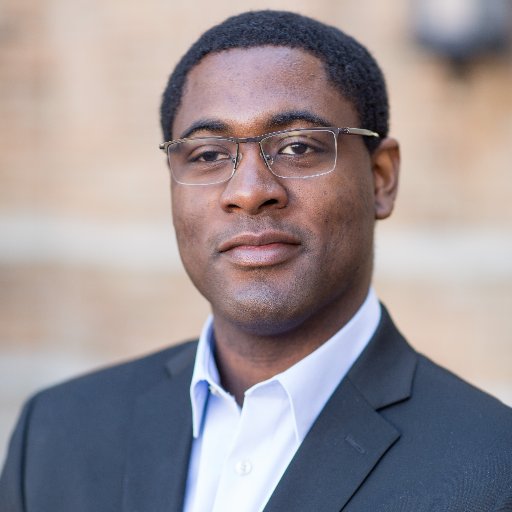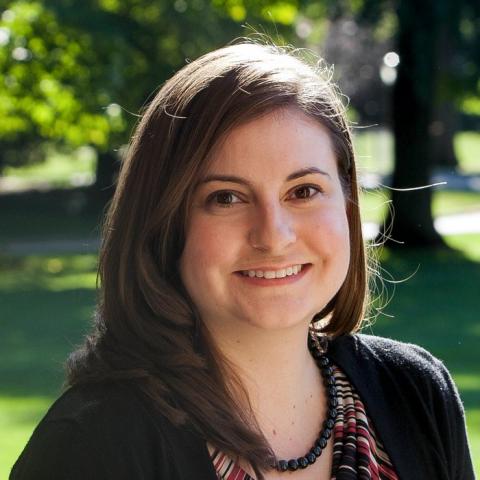Growing Up in Science: Clyde A. Daly Jr.

Details
March 26, 2021
3:00 p.m.
Zoom Event
This spring the KINSC presents its first Growing Up in Science lecture series featuring faculty member Clyde A. Daly Jr., moderated by Prof. Ryan Lei.
Growing Up in Science invites scientists to share their personal narratives, struggles, doubts, sucesses, detours, as well as answer your questions.
Official Bio
Clyde A. Daly Jr. was born and raised in Randolph MA, 30 minutes south of the City of Boston. During his undergraduate work at Gordon College, he engaged in experimental physical chemistry work related to the properties and uses of nanoparticles. In the summer of 2012, Clyde had the opportunity to be part of an NSF Research Experience for Undergraduates. He worked with Professor Mostafa A. El-Sayed to synthesize a wide variety of nanoparticles for solar energy collection, including gold nanospheres, nanocubes, and nanoprisms. With Professor Joel Boyd of Gordon College (now Erskine College), Clyde studied porous polymeric supports for photocatalytic water purification using TiO2 nanoparticles. This research formed the basis of his honors thesis when he graduated in 2013. Following graduation, Clyde turned to theoretical chemistry in his new position at the University of Notre Dame. There, he joined the laboratory of Professor Steven A. Corcelli who guided his studies of the vibrational modes of hydrated protons and carbon dioxide solvated in ionic liquids. In partnership with experimental collaborators, Clyde found an explanation for CO2’s anomalously high absorption into ionic liquids compared to other neutrally charged gas molecules: the CO2 was pulling the ionic liquid ions into a cage structured to maximally stabilize its own substantial quadrupole moment. He also determined that the structure of protons in water cannot be nearly described as H3O+ or H5O2+, but that the entire structure of the water is perturbed by acidic protons. Clyde completed his dissertation “Modeling Carbon Dioxide Vibrational Frequencies in Ionic Liquids” and graduated with his PhD in 2018. Following this, he moved to Baltimore, MD to join the lab of Rigoberto Hernandez at Johns Hopkins University and the Center for Sustainable Nanotechnology. While there, he used molecular dynamics simulations to understand the interactions between proteins and nanoparticles. Clyde also used machine learning and the data produced by the Center to build models of the toxicity of nanoparticles. In 2020, Clyde joined the faculty of Haverford College. His current research focuses on the vibrational dynamics of alkyne molecules and CO2 in complex ionic liquids, and on interactions between biomolecules and nanomaterials.
Unofficial Story
Clyde’s parents immigrated from Montserrat to the United States in the 1980s, initially settling in New York City then moving to the Boston area. Born in Boston in 1991, Clyde grew up in Massachusetts, the best state in the Union (Pennsylvania is up there too!). As a child, he was encouraged by his parents to pursue science and math - fortunately, he actually liked the subjects! Having grown up Christian, Clyde attended the highly Christian school Gordon College in a gambit to keep his growing doubts from destroying the last vestiges of his faith. It didn’t work - by the end of his freshman year he was an atheist and would never go back. Very few of his classmates knew this about him. Being different on so many axes from his peers (black, liberal and atheist at Gordon College, and black in Chemistry) from his peers motivated him to look for ways to help other people who felt alone. In 2012, Clyde joined the student publication “If I Told You,” eventually becoming Editor-in-Chief. While this was far from his usual interests in STEM, working with and leading the publication was an important part of Clyde’s college experience. During his time, If I Told You published student narratives on Mental Health, Addition, Race, and Apostasy, with a goal of providing a space for students and alumni to share personal stories about topics that are often difficult to openly discuss within Christian communities due to fear of shame or judgment. After Gordon, Clyde attended Notre Dame. He meant to keep his head down, but by his fourth year had helped to found and was president of the Black Graduate Student Association. His work with this student group was fueled by the same desire to help build community for those around him and he hopes he helped do that with this group. His leadership led to him being awarded the Sister Jean Lenz leadership award in 2017. At Haverford, Clyde is excited to put his leadership experience to good use, working with the Chemistry Student Group to increase inclusion and diversity in line with the Chemistry department’s DEI commitments.




